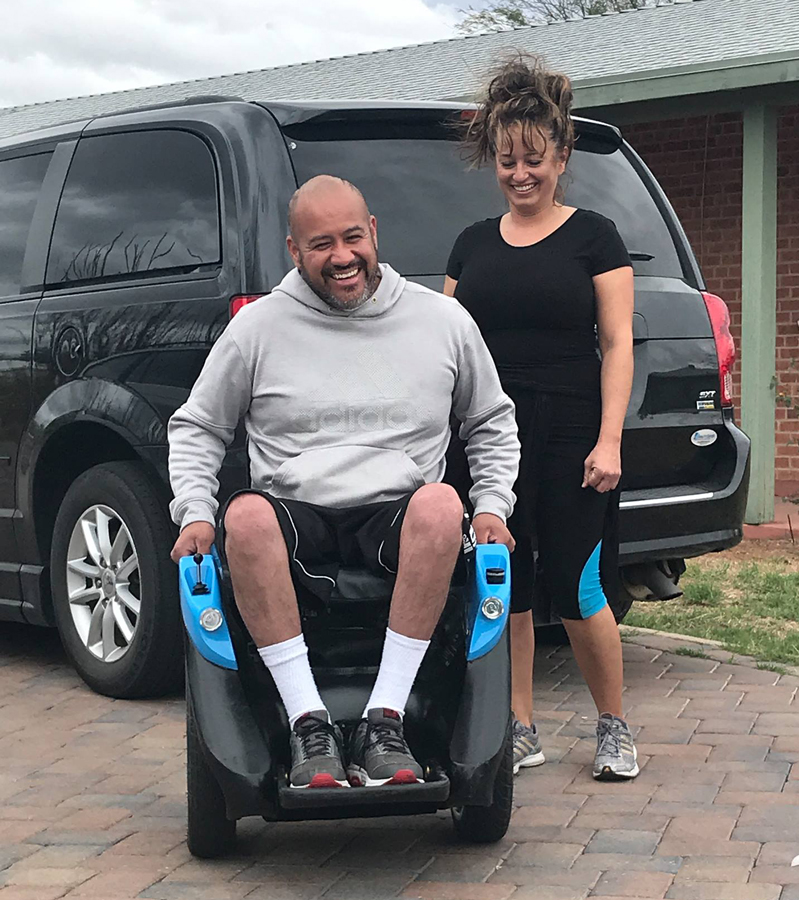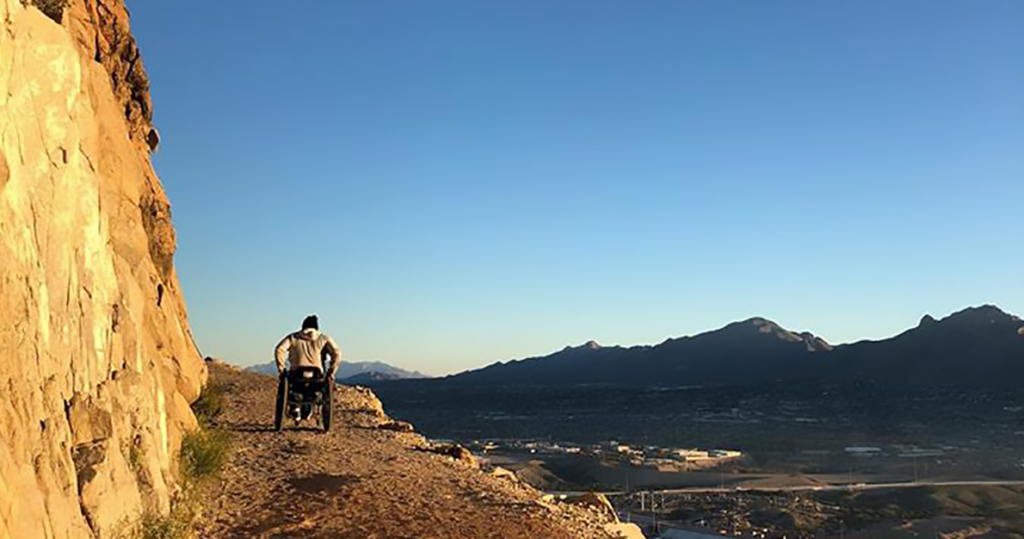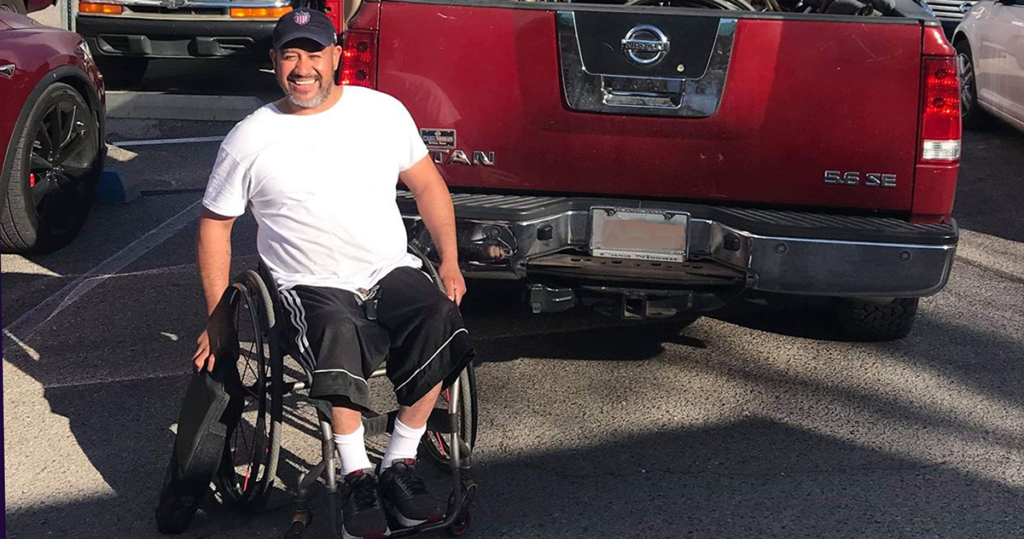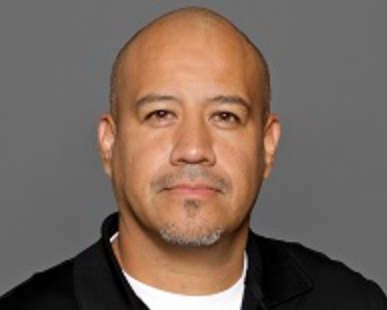 A chance encounter introduced Cruz Gutierrez to adaptive sports, and adaptive sports proved to be the key to his discovering how to embrace life after injury. Now Gutierrez is dedicated to ensuring others get the same chance he did.
A chance encounter introduced Cruz Gutierrez to adaptive sports, and adaptive sports proved to be the key to his discovering how to embrace life after injury. Now Gutierrez is dedicated to ensuring others get the same chance he did.
From Hobby to Passion
When Cruz Gutierrez isn’t out exploring the New Mexico desert on his handcycle or tearing up the basketball or tennis courts in his sport chairs, there’s a good chance that he is volunteering at one of the local hospitals. He regularly speaks to physical therapy students at the University of Texas at El Paso, helps educate aspiring medical professionals at the local community college and also works with the U.S. Army’s Warrior Transition Battalion at Fort Bliss.
No matter the makeup of his audience — be it professionals, wheelchair users or the general population — his message remains the same: not only does life go on after injury or disability, but it can still be exciting — and adaptive sports can play a huge role. “Adaptive sports changed my life to the point where I feel like I can do whatever I set my mind to,” he says. “I want to show people that they can change their lives with adaptive sports. As wheelchair users, we don’t have to just sit in our normal chairs all day — we have choices. We can have fun too.”
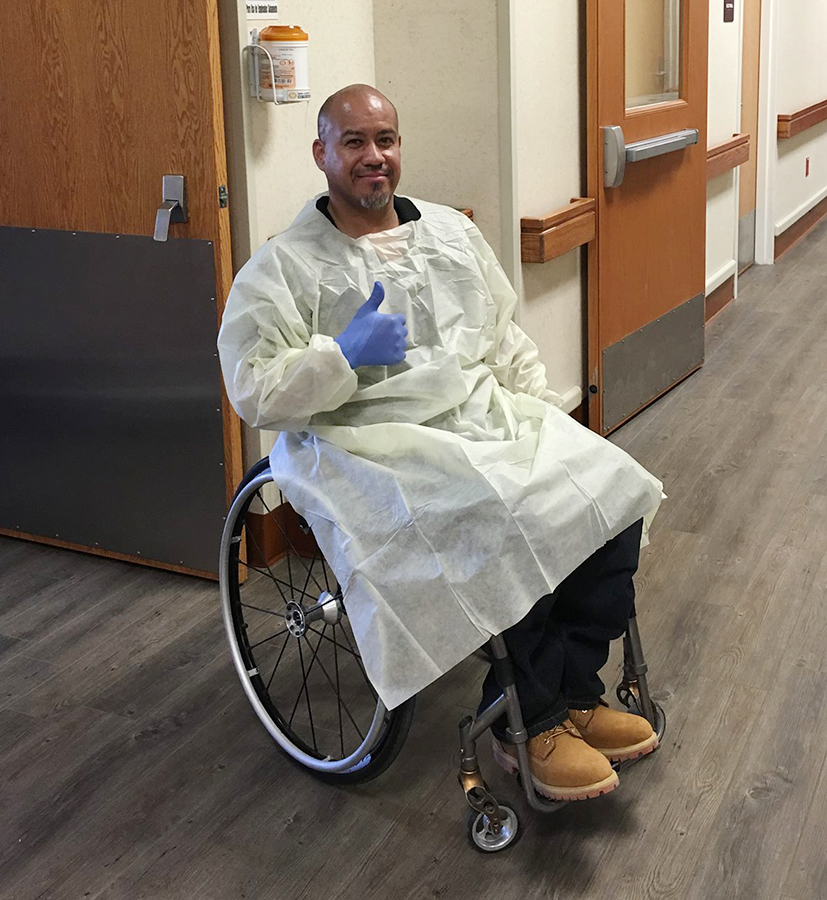
Cruz visits a rehab unit after teaching transferring techniques to physical therapy students at Highlands Rehabilitation Hospital in El Paso, Texas.
Gutierrez credits El Paso wheelchair tennis great Reggie Espinoza with teaching him that lesson eight years ago. The two met randomly at a local park and Espinoza convinced Gutierrez to try wheelchair tennis. After some initial misgivings while playing in his everyday chair, once Gutierrez started playing with the right equipment, he was hooked, and not only on tennis, but also basketball, handcycling and racing.
He plays wheelchair tennis competitively and has also competed in wheelchair basketball. He loves to race and is working on starting a handcycling team. He says tennis is his favorite, but it’s clear all the sports hold a place in his heart.
Fueled by his appreciation for proper equipment, Gutierrez has amassed a collection of wheelchairs he loans out to people looking to try adaptive sports. He gets the chairs wherever he can, many of them secondhand, and has a room at his house dedicated solely to storing them.
Wanting to share his new passions and help others, Gutierrez started speaking at local medical facilities. Those conversations helped to strengthen his confidence even further.
“At the beginning, opening up and talking with people was difficult because I didn’t know what I now know about myself,” he says. “When they first invited me, they asked me to talk about my daily life and everything I did. They were asking me questions and I realized I did know the answers, because they were simply the realities of how I live my life.”
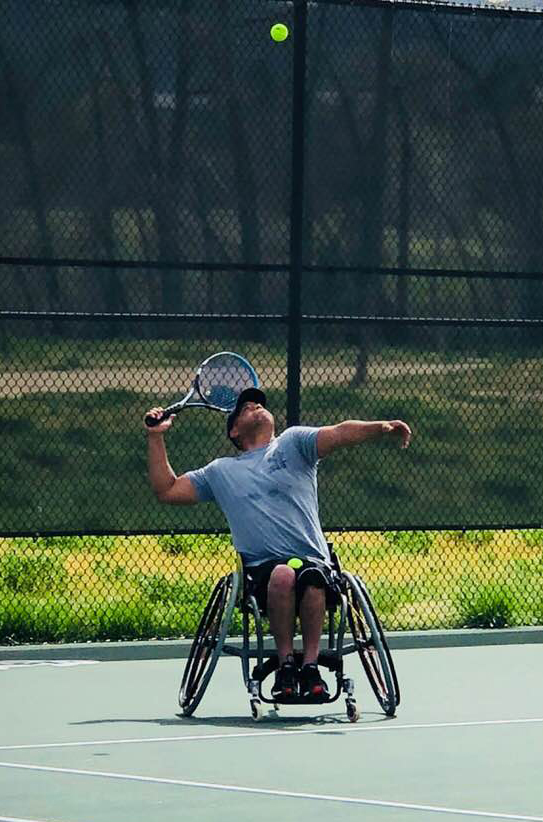 As he grew more comfortable with himself and with speaking, his volunteer work grew from a hobby into a passion.
As he grew more comfortable with himself and with speaking, his volunteer work grew from a hobby into a passion.
“I realized that if I’m honest and I talk to them about who I am, what I do, what helps me and what can harm me, I can help them help people like me in the future,” he says. “Now, I love talking to the students and mentoring and teaching them whatever they need to know about living with a spinal cord injury.”
As surely as he has helped others, Gutierrez says he has been the biggest beneficiary from his volunteering. “Talking about my personal life to students has helped me gain my social life back,” he says.
Gutierrez, who has a bachelor’s degree in criminal justice, says he is considering taking his passion for volunteering and working with people in rehab to the next level by applying to get his master’s in rehabilitation counseling at the University of Arizona. In a true win-win, he could study what he loves and possibly play on the university’s wheelchair basketball team.
Confident and Comfortable
Man About Town
Gutierrez enjoys an active social life and doesn’t let a lack of access or a potentially awkward encounter keep him from doing anything he wants to do.
“Going out shouldn’t be a big deal. For me, I just feel normal. I’m glad that I’m still able to go out and I want to make the most of it. The key is that I understand my disability and I see myself for who I am, not what I am not. I don’t see my disability when I’m going out. I just enjoy myself.
One of the things I noticed when I first started going out was that people don’t know how to approach you or what to talk about. My time volunteering and sharing my story with therapists and people with new injuries has helped make me confident that I can answer any question, no matter how awkward, and handle any situation.
If people see me out in the world, living my normal life, what I want to transmit to them is that I don’t have issues. I go out just like they do. I hope that when they see that, they’re going to feel comfortable.” Going out shouldn’t be a big deal. For me, I just feel normal. I’m glad that I’m still able to go out and I want to make the most of it. The key is that I understand my disability and I see myself for who I am, not what I am not. I don’t see my disability when I’m going out. I just enjoy myself.
One of the things I noticed when I first started going out was that people don’t know how to approach you or what to talk about. My time volunteering and sharing my story with therapists and people with new injuries has helped make me confident that I can answer any question, no matter how awkward, and handle any situation.
If people see me out in the world, living my normal life, what I want to transmit to them is that I don’t have issues. I go out just like they do. I hope that when they see that, they’re going to feel comfortable.”
Can’t Live Without: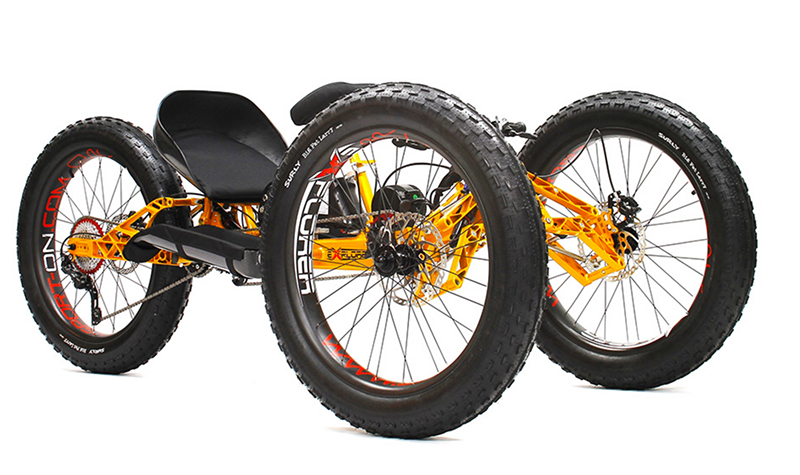 Intrepid handcycle gives me the freedom to explore the desert around my house. I’ve only had it for three months, but I love it.
Intrepid handcycle gives me the freedom to explore the desert around my house. I’ve only had it for three months, but I love it.
Dream Cycle:
I wish I was able to afford a Fat Explorer [pictured right]. It’s a three-wheel off-road handcycle with an electric motor assist.
Next on the Bucket List:
I can’t wait to go skydiving for the first time. There’s a place called Dropzone near me and it’s on my list.
Why I Joined United Spinal:
When I was paralyzed, I was lucky to end up at a rehabilitation hospital where the El Paso chapter had a strong presence. They helped me out a lot, and I started volunteering regularly and never stopped.
** This post was originally published on http://www.newmobility.com/2019/06/cruz-gutierrez/


